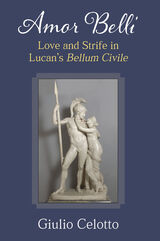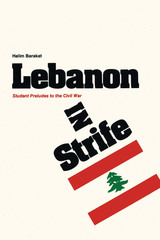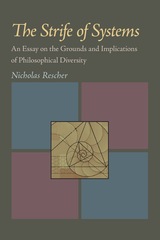
Compelled by the emperor Nero to commit suicide at age 25 after writing uncomplimentary poems, Latin poet Lucan nevertheless left behind a significant body of work, including the Bellum Civile (Civil War). Sometimes also called the Pharsalia, this epic describes the war between Julius Caesar and Pompey.Author Giulio Celotto provides an interpretation of this civil war based on the examination of an aspect completely neglected by previous scholarship: Lucan’s literary adaptation of the cosmological dialectic of Love and Strife.
According to a reading that has found favor over the last three decades, the poem is an unconventional epic that does not conform to Aristotelian norms: Lucan composes a poem characterized by fragmentation and disorder, lacking a conventional teleology, and whose narrative flow is constantly delayed. Celotto’s study challenges this interpretation by illustrating how Lucan invokes imagery of cosmic dissolution, but without altogether obliterating epic norms. The poem transforms them from within, condemning the establishment of the Principate and the Julio-Claudian dynasty.

In this study, an eminent sociologist of the Arab world analyzes student politics in Lebanon and their relationship to the civil war. This focus is part of a larger concern with upheaval in Arab society and with political and social integration in mosaic societies in general. Professor Barakat provides a clear, thorough, and comprehensive analysis of late twentieth century Lebanese society and the dominant ideological veins within it.
Lebanon in Strife is a comparative study of Lebanese youth with special emphasis on their alienation from society and politics and their place at the vanguard of social change. The study is set in the context of the continual confrontation between forces for change and the established order in Lebanon, viewed from both a local and an international perspective. The author argues that vertical loyalties (based on religious, ethnic, or regional ties) are more significant than horizontal loyalties (based on socioeconomic class) in determining Lebanese student political behavior and attitudes. However, vertical loyalties are explained in socioeconomic terms, for the two forms of cleavages coincide; and the whole society is composed of religious communities arranged in a hierarchy of power and status. The author shows that these ties conflict with and undermine orderly social change and national unity and that they could account for conditions that have led to civil war in Lebanon.
In an epilogue, Professor Barakat relates his analysis of student politics to political developments in Lebanon during the civil war of 1975–1976, including an assessment of the role of Syria and the prospects for a negotiated end to armed struggle in the country.
This is the first empirical study of Lebanese political life viewed from the standpoint of its central force for change, the students. It is an invaluable resource for students of the modem Middle East as well as for specialists in sociology, politics, and history. Lebanon in Strife has special relevance to problems of political change and development in the Third World countries, providing a sociopolitical model for the analysis of student politics in traditional and transitional societies.

This sparkling account of the great age of Whiggery during the reigns of George I and II is distinguished by its attention to social history. The author deftly explains how the political transformation which brought an end to the “rage of party” under Queen Anne and ushered in the “strife of faction” under the Hanoverians was related to social and economic conditions. This major political change brought stability to England and—by important, though incremental shifts in mobility, religion, agriculture, industry, and literacy—slowly transformed English society.
W. A. Speck argues that in 1714 England was ruled by rival elites called Tory and Whig and that by 1760 they had fused to form a ruling class. This union became possible as divisive issues faded and economic and political interests were shared. Whiggery itself, however, split apart for lesser reasons. “Country” Whigs were restorationists on moral and religious grounds while “Court” Whigs—neither Saints, nor Spartans, nor Reformers—created the mechanisms to realize the promise of the Glorious Revolution of 1689: mixed monarchy, property and liberty, and Protestantism.
Stability and Strife is the most up-to-date book in English eighteenth-century history in its methods—the use of social science data and literary sources—and in its sophisticated topical and narrative approaches to this fascinating era.

The disagreement of philosophers is notorious. In this book, Rescher develops a theory that accounts for this conflict and shows how the basis for philosophical disagreement roots in divergent 'cognitive values'-values regarding matters such as importance, centrality, and priority. In light of this analysis, Rescher maintains that, despite this inevitable discord, a skeptical or indifferentist reaction to traditional philosophy is not warranted, seeing that genuine value-conflicts are at issue. He argues that philosophy is an important and worthwhile enterprise, notwithstanding its inability to achieve rationally constrained consensus on the issues. Given the nature of the enterprise, consensus is not a realistic goal, and failure to achieve it is not a defect. Accordingly, Rescher argues against the revisionist views proposed by Richard Rorty and Robert Nozick. His discussions are devoted to providing a clear view of why philosophical problems arise and how philosophers address them.
READERS
Browse our collection.
PUBLISHERS
See BiblioVault's publisher services.
STUDENT SERVICES
Files for college accessibility offices.
UChicago Accessibility Resources
home | accessibility | search | about | contact us
BiblioVault ® 2001 - 2024
The University of Chicago Press









